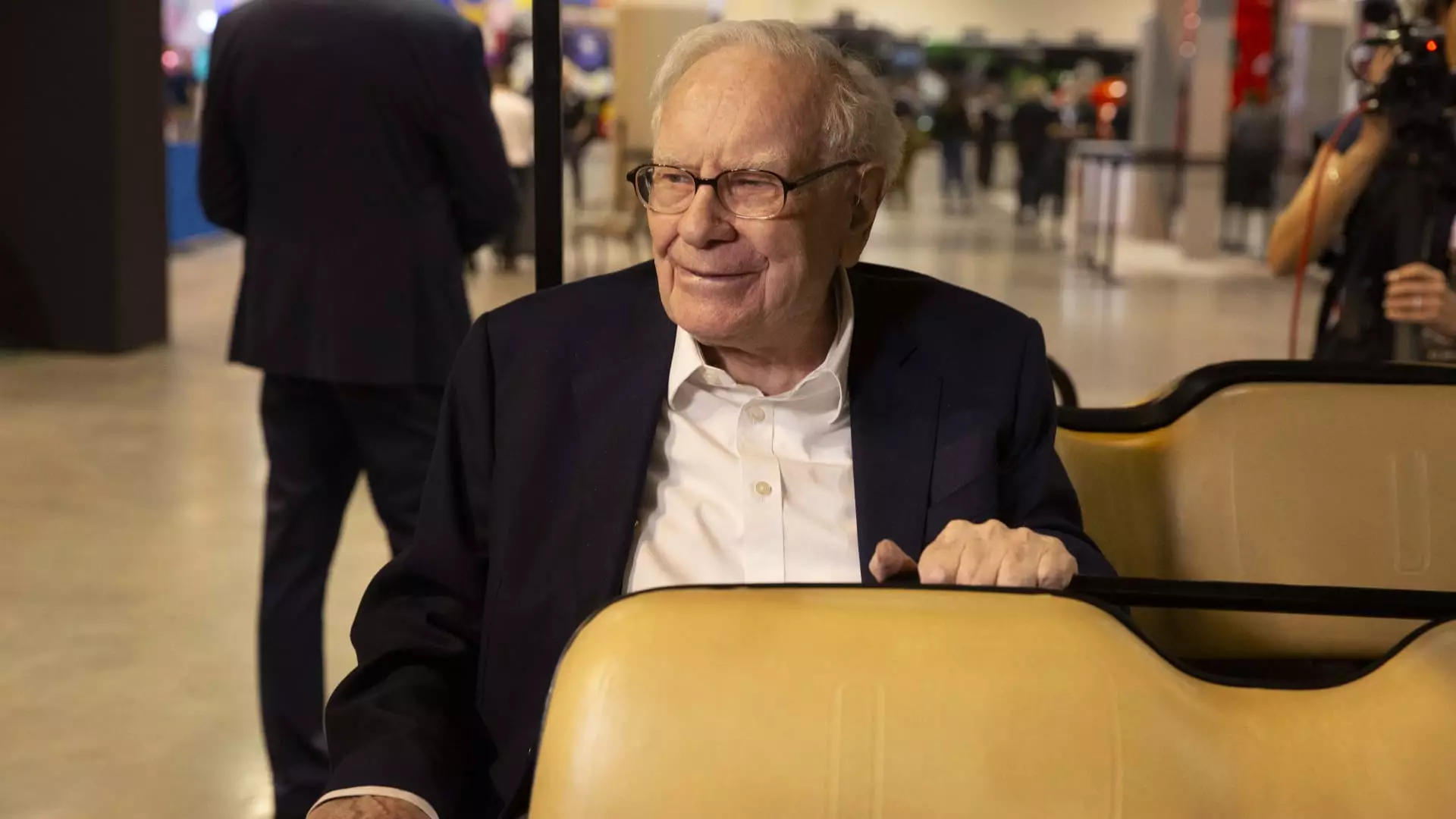Berkshire Hathaway Inc., renowned for its eclectic business interests and strategic investment philosophies, recently reported impressive operating earnings, showcasing a 71% surge to $14.5 billion in the fourth quarter. This strong performance stemmed largely from significant gains in insurance underwriting, which saw profits skyrocket by an astounding 302% — a portion that propelled anticipation among shareholders. However, despite the earnings boom, many investors found themselves grappling with questions regarding the company’s massive cash reserves, raising eyebrows at the seemingly stagnant stock-buying activities.
As of the end of the fourth quarter, Berkshire’s cash reserves swelled to a historic $334.2 billion, an increase from $325.2 billion in the previous quarter. This burgeoning cash pile, while often perceived as a safety net, has been met with mixed reactions among stakeholders. Warren Buffett, Berkshire’s nonagenarian leader, emphasized in his annual letter that this inflated cash reserve does not signify a reduction in his enthusiasm for investing in stocks or companies. He highlighted a cautious stance, suggesting that the current market valuations deter significant buying activity. His assertion that “often, nothing looks compelling” reflects a philosophical approach to investment — one that values strategic waiting over impulsive transactions.
The dilemma lies in the balance of holding vast cash reserves versus the potential opportunities that may arise from deploying that capital. Shareholders are left wondering: Is it prudent to hold records amounts of cash when the markets are booming? Many view the passive approach as an opportunity lost, especially as Berkshire’s largest equity positions in companies such as Apple and Bank of America have been scaled back as part of a broader selling strategy. The question arises — can the wealth of cash reserves translate to future opportunities, or is it simply a missed chance to capitalize on the market’s upward momentum?
Berkshire Hathaway’s cautious posture regarding stock purchases and its recent pattern of selling equities marks a significant departure from the company’s historically aggressive investment strategies. Over nine consecutive quarters, the conglomerate has offloaded equities totaling over $134 billion, raising concerns about its long-term investment philosophy. The decline in investment gains — falling sharply from $29.1 billion a year prior to merely $5.2 billion — further amplifies the urgency of shareholder anxieties.
Buffett defends these choices, asserting the inevitability of cyclical market behaviors. The renowned investor remains steadfast in his belief that the current losses in capital appreciation will be compensated for when the market faces inevitable downturns. This perspective has garnered varying levels of acceptance among investors, with some expressing impatience over the inactivity while others commend Buffett’s prudence, viewing it as a strategic preparation for future market corrections. For many long-term shareholders, this conservative approach is reassuring as it underscores a commitment to positioning Berkshire, not just to survive but to thrive in challenging conditions.
As the conversation around Berkshire Hathaway’s financial strategies unfolds, attention inevitably turns towards leadership transitions. Buffett has shown confidence in Greg Abek, his designated successor, suggesting his ability to identify favorable equity opportunities reminiscent of the late Charlie Munger. This endorsement hints at a planned continuity in investment philosophy that has been instrumental in propelling Berkshire Hathaway to its current standing.
Investors are not just looking for immediate returns but need clarity on how future leadership will handle the unprecedented cash reserves and investment potential. The firm’s acknowledged halt on buybacks for the first quarter of the year further complicates sentiment as investors anticipate a potential pivot in Berkshire’s strategy.
Berkshire Hathaway’s latest earnings report paints a compelling picture of operational strength juxtaposed with a complex narrative surrounding its cash reserves. While earnings have soared impressively, the accumulation of cash signifies both opportunity and caution — a theme that resonates strongly with Buffett’s storied investment philosophy. As shareholders continue to weigh the implications of these decisions, they are left to consider both the immediate future and the long-term vision that has historically made Berkshire a titan in the investment realm. With the right leadership rooted in Buffett’s principles, there remains a prevailing hope that Berkshire Hathaway will navigate these turbulent waters successfully.

